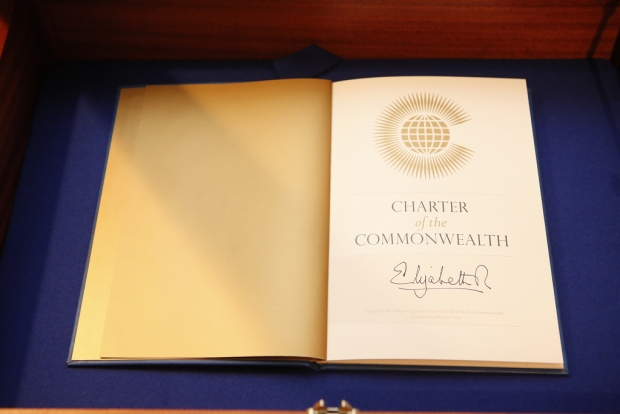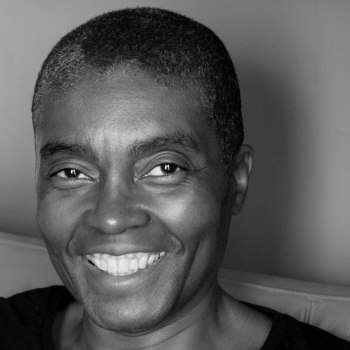As the Commonwealth Heads of Government Meeting (CHOGM) starts in the UK today (16 April 2018) it is an ideal time to ask what will happen to the children of the Commonwealth who came here as British citizens over 70 years ago?
The infomercial promoting the CHOGM states “This is our Commonwealth” and “What’s agreed on this week matters to us all,” so it seems ironic that for weeks the British Government has refused to discuss a situation that affects such a large number of former Commonwealth citizens within its own borders. Amelia Gentleman, from the Guardian, tweeted that she contacted Downing Street on Friday (13 Apr 2018) about these cases that she has been reporting, yet the Prime Minister’s office have said that Theresa May “had only become aware of the request on Monday morning and confirmed that she would be holding a meeting ‘at the earliest possible opportunity’ with Caribbean leaders.”
At around 13:00 today, the Prime Minister, Theresa May tweeted, “The Commonwealth has never just been about heads of state and government. It has always been an organisation in which people and businesses from around the world can come together and work together to improve all our lives,” yet she initially refused to discuss the case of the ‘Windrush Generation’ at the CHOGM.
When asked last week to discuss what appears to be a travesty of justice, the Prime Minister rejected the formal diplomatic request leaving the Caribbean heads of government to conclude that the British government was not taking this matter seriously.
Theresa May has also stated that the CHOGM is the “largest summit our country has ever hosted.” Apparently in the Commonwealth every country has a voice, yet the Caribbean people who migrated to Britain over half a century ago have so far remained voiceless and unrepresented by the British Government.
Following the publication of a letter signed by over 140 MPs from across the political parties, Theresa May has now agreed to meet with representatives from 12 Caribbean countries who are at the CHOGM in the UK. The immigration minister Caroline Noakes has also admitted that some Caribbean British citizens have been deported in error, although she would not qualify the amount of people that have been affected by the “terrible mistakes” in this way.
The Commonwealth had 2.4 billion citizens across 53 countries – many of them have requesteda discussion on this matter, yet the Tory led British Government will not agree to open the discussion on this abominable situation that is clearly a breach of the Commonwealth Charter.

The current Commonwealth Charter was signed by HM Queen Elizabeth II on Commonwealth Day 2013. Its firsts words are “We the people of the Commonwealth …” Section II on Human Rights is shown here in full:
We are committed to the Universal Declaration of Human Rights and other relevant human rights covenants and international instruments. We are committed to equality and respect for the protection and promotion of civil, political, economic, social and cultural rights, including the right to development, for all without discrimination on any grounds as the foundations of peaceful, just and stable societies. We note that these rights are universal, indivisible, interdependent and interrelated and cannot be implemented selectively. We are implacably opposed to all forms of discrimination, whether rooted in gender, race, colour, creed, political belief or other grounds.
The last sentence of this Human Rights section confirms that the member states of the Commonwealth are opposed “to all forms of discrimination, whether rooted in gender, race, colour, creed, political belief or other grounds.” Alas, by their continual refusal to discuss this matter openly, the British Government is following several other Commonwealth nations who disregard the commitment to equality and protection of civil, social, social and economic rights of the citizens of their individual nations.
Labour MP, David Lammy has secured an Urgent Question in the House of Commons at 15:30 on the immigration status of the Windrush Generation. This is following a letter signed by 140 cross party MPs urging Theresa May to take action, and correct this “historic wrong”. Lammy stated that having to raise this question in the house was indicative of a “national day of shame”.
In response to Lammy’s question the Home Secretary, Amber Rudd MP, read from a prepared statement. Her opening remarks asserted that, “there is absolutely no question about their right to remain,” and she confirmed that she will establish a new team of 20 people who will help these residents evidence their right to be in the UK, and to access the necessary services.
The Home Secretary suggested that with this dedicated team cases will take a maximum of two weeks to resolve, and she also assured members of the House that they would be no charges levied on applicants, as “no one should be left out of pocket”.
David Lammy noted that the relationship between the UK and the Caribbean is inextricable since the arrival of the first British ships in the area in 1623. Lammy reminded the house that the Nationality Act of 1948 ensured that Caribbean people migrating to the UK did so as British citizens. He continued that it is “inhumane and cruel for so many of that Windrush Generation to have suffered so long in this condition, and for the Secretary of State only to have made a statement today.”
Lammy also enquired if the Home Secretary could “tell the House how many have been detained as prisoners in their own country … how many have been denied help under the National Health Service, how many have been denied pensions and how many have lost their jobs?”
These questions were not directly answered.
With obvious emotional Lammy stated that having to raise this question in the house was indicative of a “national day of shame” that “has come about because of a hostile environment policy that was begun under her prime minister.”
The only concession from Rudd was her concern that the Home Office “has become too concerned with policy and strategy and sometimes lose sight of the individual.” Rudd asserted that she has acted now because she has seen the individual stories now and, “some of them have been terrible.” Following this statement she reasserted her commitment to ensuring that cross-departmental information is shared to verify the identity of these individuals and to protect the ‘Windrush cohorts’. Rudd repeated that she was not aware of any specific cases or deportation in these circumstance of lack of up-to-date documentation.
I believe this ‘Windrush Generation’ crisis is deliberate. It’s not an anomaly – it’s structural discrimination. The lives of these Caribbean British elders and their families was deemed collateral damage when the latest immigration laws were enacted. This is the result of systemic and discriminatory government behaviour.
Cross party members of the house raised several questions about individual cases of their own constituents as well as general queries relating to the status of Commonwealth citizens from countries such as India, Uganda, and Poland. The Home Secretary used her stock phrase to respond to these queries – she suggested that the Members contact the Home Office with details of each case so that they could look at them individually, because she repeatedly declared that the “Home Office will be more focused on individuals rather than policy.”
There were several questions from members across the floor including Simon Hoare, MP for North Devon, who asked if there would be a refund of the fees that Caribbean elders had already expense.
Anna Soubry, MP for Broxtowe, Nottinghamshire, was interested to know if this statement from the Home Secretary meant that the default Home Office response of saying, ‘No’ would now alter.
Mark Harper, MP for Forest of Dean, asked what proactive steps the Government would be making to communicate information to those British residents that might be affected by this institutional discrimination. While Joanne Cherry, SNP MP for Edinburgh South West, observed that this the Home Secretary was wrong that this issue “is not just about individuals it’s about a systemic policy put out by her (Home Secretary) department and it’s symptomatic of the politically driven hostile environment policy, and it’s a sign that it has to stop,” because according to the Migration Observatory at Oxford, there are up to 50,000 Commonwealth born people in this situation.
To many of these questions the Home Secretary responded that she would seek advice or data and get back to the individual Member because the ‘Windrush Generation’ “are here legally and we will help them.”
Diane Abbot, MP for Hackney, asked why in 2014 the Government, under the direction of the then Home Secretary Theresa May removed the protection for Commonwealth citizens without parliamentary debate or scrutiny. Much like Theresa May choosing to engage in air strike in Syria without parliamentary debate or scrutiny this week.
Abbott also requested a cessation on deportations of this groups of people aligned with an apology, and possible compensation, to those wrongfully deported in this immigration policy scandal.
Amber Rudd tried to reassure members of the House with her concluding remarks that indicated that the Government is regarding this situation seriously when she announced that the Prime Minister would be meeting with the Heads of Government on Tuesday 17 April 2018 while she, as Home Secretary, would be meeting with High Commissioners this week to discuss this issue “as a matter of urgency.”
The Home Secretary’s final words to the House were “what I am interested in is effective, sympathetic outcomes.”
Most people simply want justice for Caribbean British elders.
Well, we will have to wait and see what we get from this Home Secretary Amber Rudd and her dedicated team of 20.
A Home Office official stated that legislation “is complex and, when revising it, it is the normal process to simplify it where possible and remove duplications.” Laws are complicated, and anomalies occur, yet all available evidence seems to indicate that the Caribbean British elders were deliberately targeted by the removal of their protection in 2014.
The outcomes of the meetings arranged this week with the CHOGM and the Caribbean High Commissioners is eagerly awaited.
© Marjorie H Morgan 2018


You must be logged in to post a comment.